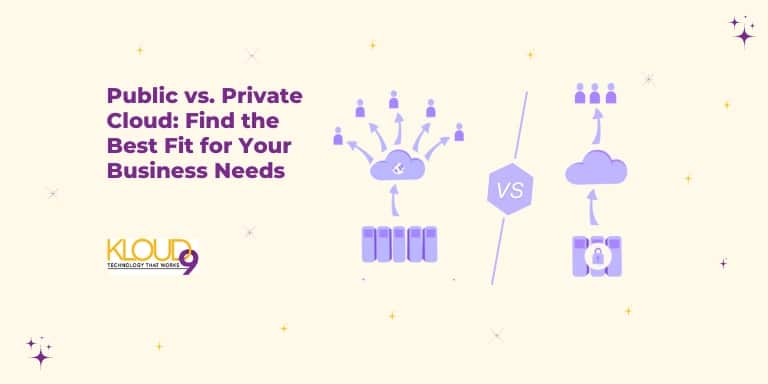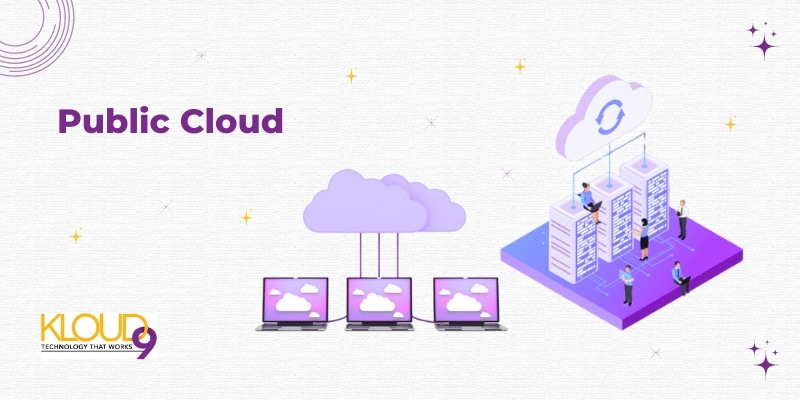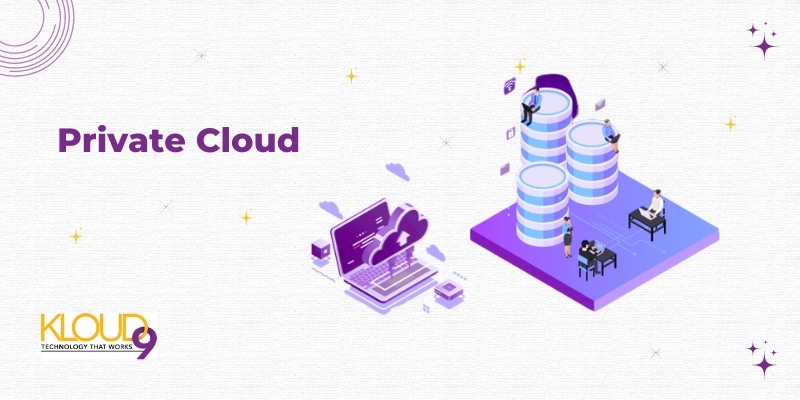As businesses increasingly turn to cloud computing to meet their IT needs, the decision between using a public cloud or a private cloud becomes a critical consideration. Both options offer unique advantages and disadvantages, and the choice depends on factors such as cost, security, scalability, and control. This article will explore the differences between public and private clouds, their respective benefits and drawbacks, and guide how to determine which option is best suited for your business.
Understanding Public Cloud
Third-party vendors provide public cloud services over the internet, and resources such as servers, storage, and applications are shared among multiple users. Providers like Amazon Web Services (AWS), Microsoft Azure, and Google Cloud Platform (GCP) are well-known examples of public cloud computing.
Benefits of Public Cloud
- Cost Efficiency: Public cloud services are typically more cost-effective than private clouds because they operate on a pay-as-you-go model. Businesses only pay for the resources they use, which can significantly reduce capital expenditures associated with buying and maintaining hardware. This is one of the significant benefits of cloud computing for small businesses.
- Scalability: One of the most compelling benefits of public cloud services is their scalability. Businesses can quickly scale up or down based on their needs without having to invest in additional physical infrastructure. This elasticity is particularly advantageous for businesses with fluctuating workloads.
- Accessibility: Public cloud services are accessible from anywhere with an internet connection. This is ideal for businesses with remote teams or those that require a high level of mobility and collaboration across different locations.
- Innovation and Updates: Public cloud providers continually update their services, offering the latest technologies and innovations. This ensures that businesses can leverage cutting-edge tools and features without the need for ongoing maintenance or upgrades.
Drawbacks of Public Cloud
- Security and Privacy Concerns: Because public cloud services are shared among multiple users, security and privacy concerns can arise. Businesses may worry about data breaches, unauthorized access, and compliance with industry regulations. Although public cloud providers invest heavily in cloud security, some businesses may still feel uneasy about sharing resources with others.
- Limited Control: With public cloud services, businesses have limited control over the underlying infrastructure. This can be a drawback for organizations that require customized configurations or need to adhere to strict compliance standards.
- Performance Variability: Since public cloud resources are shared, performance can sometimes be inconsistent. During peak usage times, businesses might experience slower response times or reduced performance.
Understanding Private Cloud
Private cloud services are dedicated to a single organization, either hosted on-premises or by a third-party provider. This setup offers exclusive access to computing resources, ensuring higher levels of security and control.
Benefits of Private Cloud
- Enhanced Security: Private clouds provide a higher level of security compared to public clouds because the resources are dedicated to a single organization. This reduces the risk of data breaches and unauthorized access. Private clouds are often the preferred choice for businesses that handle sensitive data, such as financial institutions and healthcare providers. Private cloud computing solutions are designed to meet stringent security requirements.
- Greater Control: Businesses using private clouds have full control over their infrastructure, allowing for customized configurations and management. This is particularly beneficial for organizations with specific compliance requirements or those that need to tailor their environment to unique business needs.
- Consistent Performance: With a private cloud, businesses do not have to share resources with other users, leading to more consistent and reliable performance. This can be crucial for applications that require high availability and low latency.
- Compliance and Regulatory Support: Private clouds are often better suited for businesses that must adhere to strict compliance and regulatory standards. The ability to customize security measures and audit controls makes it easier to meet these requirements.
Drawbacks of Private Cloud
- Higher Costs: Private clouds can be more expensive than public clouds due to the need for dedicated hardware and infrastructure. Businesses must also bear the costs of maintenance, upgrades, and staffing to manage the private cloud environment.
- Scalability Limitations: While private clouds can scale, they do not offer the same level of elasticity as public clouds. Scaling up may require significant investment in additional hardware, which can be a slow and costly process.
- Maintenance and Management: Managing a private cloud requires skilled IT staff and resources. This can be a burden for smaller businesses or those without a dedicated IT department. The responsibility for updates, security patches, and hardware maintenance falls entirely on the organization.
Choosing the Right Cloud for Your Business
Deciding between a public cloud, private cloud, or hybrid cloud solution requires careful consideration of various factors:
- Budget: Public clouds are generally more cost-effective, especially for small to medium-sized businesses with limited budgets. However, private clouds, while more expensive, provide greater security and control, which may be worth the investment for certain organizations.
- Security Requirements: Businesses handling sensitive data or subject to strict regulatory requirements may prefer private or hybrid clouds for their enhanced security and compliance features. Public clouds, despite robust security measures, may not offer the same level of assurance for highly sensitive information.
- Scalability Needs: If your business experiences fluctuating workloads or rapid growth, the scalability of public clouds can be a significant advantage. Hybrid clouds also offer scalability while maintaining control over critical operations.
- IT Resources: Consider the availability of skilled IT staff to manage and maintain the cloud environment. Public clouds reduce the burden on internal IT teams, while private clouds require more hands-on management. Hybrid clouds require expertise in both public and private cloud management.
- Performance Requirements: Consistent and reliable performance is crucial for mission-critical applications. Private clouds offer dedicated resources that can ensure high performance, while public clouds may experience variability during peak usage times.
- Compliance and Regulatory Considerations: Evaluate your industry's compliance and regulatory standards. Private and hybrid clouds often provide better support for meeting stringent requirements, thanks to customizable security measures and dedicated resources.
- Future Growth: Consider your business's future growth and how your cloud needs might evolve. Hybrid clouds offer the flexibility to adapt as your requirements change, combining the strengths of public and private clouds.
Conclusion
By carefully assessing your business's requirements and considering the benefits of cloud computing and the potential drawbacks of each cloud model, you can make an informed decision that aligns with your goals and resources. Whether you opt for a public, private, or hybrid cloud, leveraging the right cloud services can drive innovation, enhance productivity, and support your business's growth in an increasingly digital landscape.





You must be logged in to post a comment.